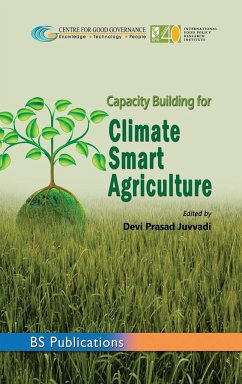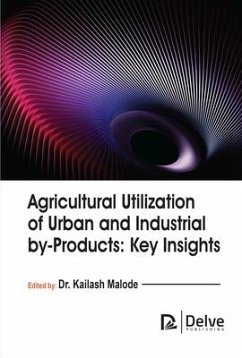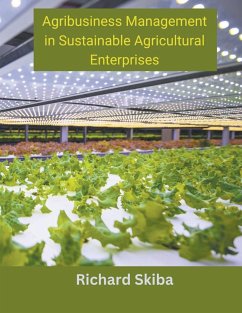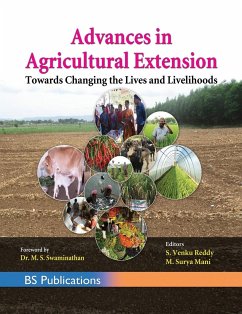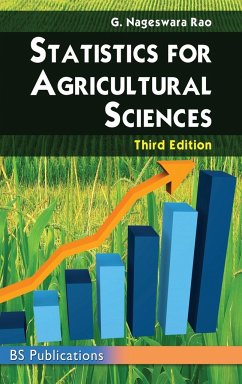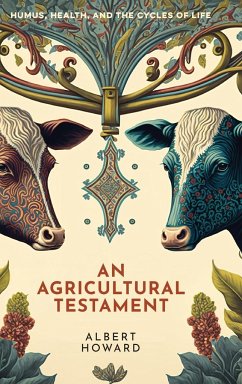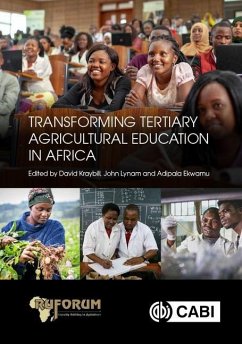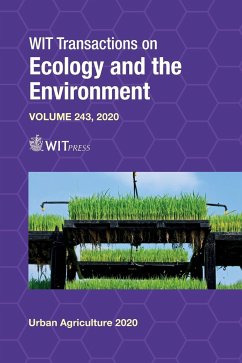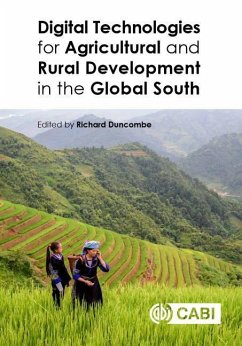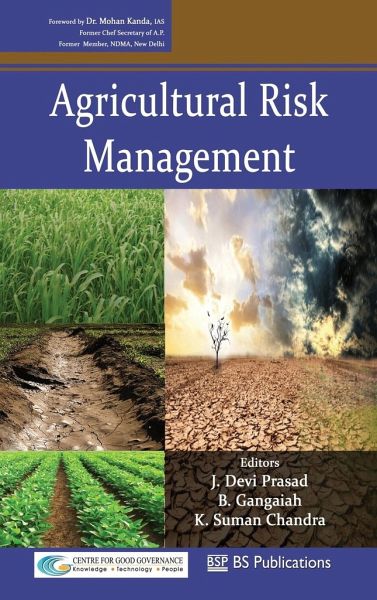
Agricultural Risk Management
Versandkostenfrei!
Versandfertig in 1-2 Wochen
63,99 €
inkl. MwSt.

PAYBACK Punkte
32 °P sammeln!
"Agriculture is a profession of hope", someone said. Man has landed on moon and has sent unmanned spacecrafts to Mars and Venus and transforming lives by fascinating technological innovations, yet he cannot shower rains at will, cannot prevent droughts or floods or even predict them with certainty. Risk and uncertainty are considered ubiquitous and varied in agriculture resulting from a range of factors including the vagaries of weather, the unpredictable nature of biological processes, the pronounced seasonality of production and market cycles etc. Weather forecasts are probabilities and proj...
"Agriculture is a profession of hope", someone said. Man has landed on moon and has sent unmanned spacecrafts to Mars and Venus and transforming lives by fascinating technological innovations, yet he cannot shower rains at will, cannot prevent droughts or floods or even predict them with certainty. Risk and uncertainty are considered ubiquitous and varied in agriculture resulting from a range of factors including the vagaries of weather, the unpredictable nature of biological processes, the pronounced seasonality of production and market cycles etc. Weather forecasts are probabilities and projections based on improved technologies but not reachable to many small and marginal farmers. But still vast majority of the people in the country continue in farming with a hope that they would get better production and better prices. Agriculture continues to play a major role, in spite of declining share in India’s overall economy. Even today, as we entered the new millennium, the situation is still the same, with almost the entire economy being sustained by agriculture, which is the mainstay of the villages. Although agriculture contributes less than 15% of India’s GDP, its importance in the country’s’ economic, social and political fabric goes well beyond this indicator. The rural areas are still home to 75 percent of the India’s 1.2 billion people, a large number of whom are poor. Most of the rural poor depend on rain-fed agriculture and fragile forests for their livelihoods. Agricultural risk is associated with negative outcomes that stem from imperfectly predictable climatic and price variables. Weather and climate are major risks and uncertainty factors impacting agriculture production. Market risk is due accessibility of inputs, uncertainty of prices in buying inputs, selling farm output, dairy and livestock products etc. Risk management is very critical to the success of agriculture, and yet there is a lack of tools used to manage risk as well as a lack of understanding of the tools themselves. Though, risk is an integral part of agriculture and farmers make risky decisions every day and confront different types of risk, changes in the risk environment and available tools to manage the risk make it a compelling reason to engage in risk management education. This volume is outcome of selected papers presented at the National Seminar on "Agricultural Risk Management" organized during 3-4 January 2014 by Centre for Good Governance (CGG) in association with National Institute of Rural Development and Panchayati Raj (NIRD&PR) The purpose of this comprehensive edited book of selected articles is to contribute to improved agricultural decision making by explaining what can be done in risk analysis and management. It should prove useful not only to practitioners and scientists involved in agriculture, water and land use, environmental management but also to policy makers in formulating appropriate strategies in agricultural risk management in India and elsewhere. Further, we hope that this volume will contribute to productive policy change to formulate sustainable risk mitigation strategies in agriculture leading to increased farm income





